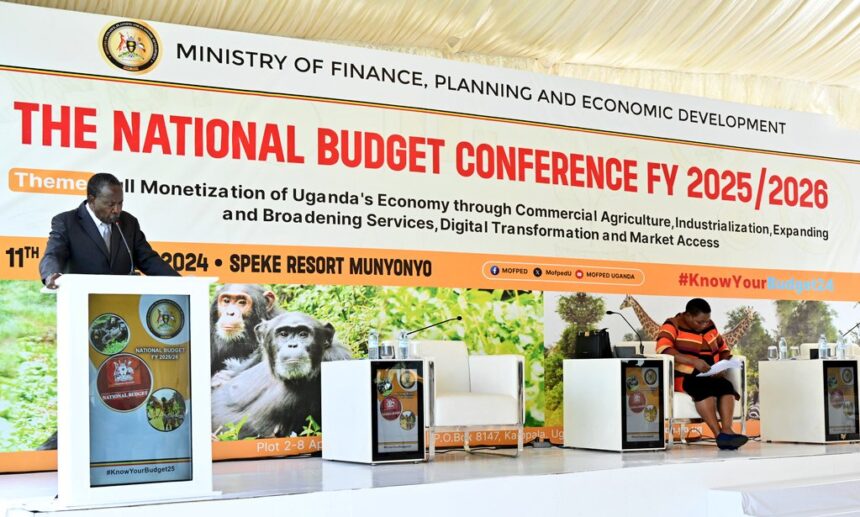Uganda’s government has set the budget projection for the 2025/26 fiscal year at Shs57.4 trillion—a significant reduction from the current year’s Shs72.1 trillion.
The announcement, made by Ramathan Ggoobi, Permanent Secretary and Secretary to the Treasury, during a Presidential Advisory Committee on the Budget (PACOB) engagement, reflects Uganda’s shift toward a more targeted fiscal approach. This new budget is a cornerstone of Uganda’s Vision 2040 plan, aiming to boost the GDP from its present USD 50 billion to an ambitious USD 500 billion.
Ggoobi highlighted that the upcoming budget will focus on strategic reallocation and reduced reliance on borrowing, aligning with the National Development Plan IV (NDP IV). Total discretionary resources have been reduced by Shs3.935 trillion, attributed largely to a dramatic drop in external borrowing, down by Shs1.364 trillion, as well as a sharp reduction in net domestic borrowing by Shs4.957 trillion.
This restrained borrowing is counterbalanced by increased external debt repayments, which have climbed by Shs882.5 billion, pushing the total repayment to Shs4.032 trillion.

The government’s leaner budget strategy prioritizes high-impact investments in sectors capable of catalyzing sustainable growth and job creation. “This resource envelope should address the key interventions and activities of government that must be financed to enable us achieve the annual targets required to grow the economy ten-fold starting FY 2025/26,” Ggoobi stated.
With an ambitious target of 8% annual GDP growth and eventual double-digit expansion, the budget shifts focus to high-priority sectors that can accelerate economic development. The approach reflects a calculated step toward fiscal responsibility and economic resilience as Uganda works to achieve a prosperous future within the framework of Vision 2040, laying the groundwork for sustained, inclusive growth and a resilient economy in the face of evolving global economic challenges.








